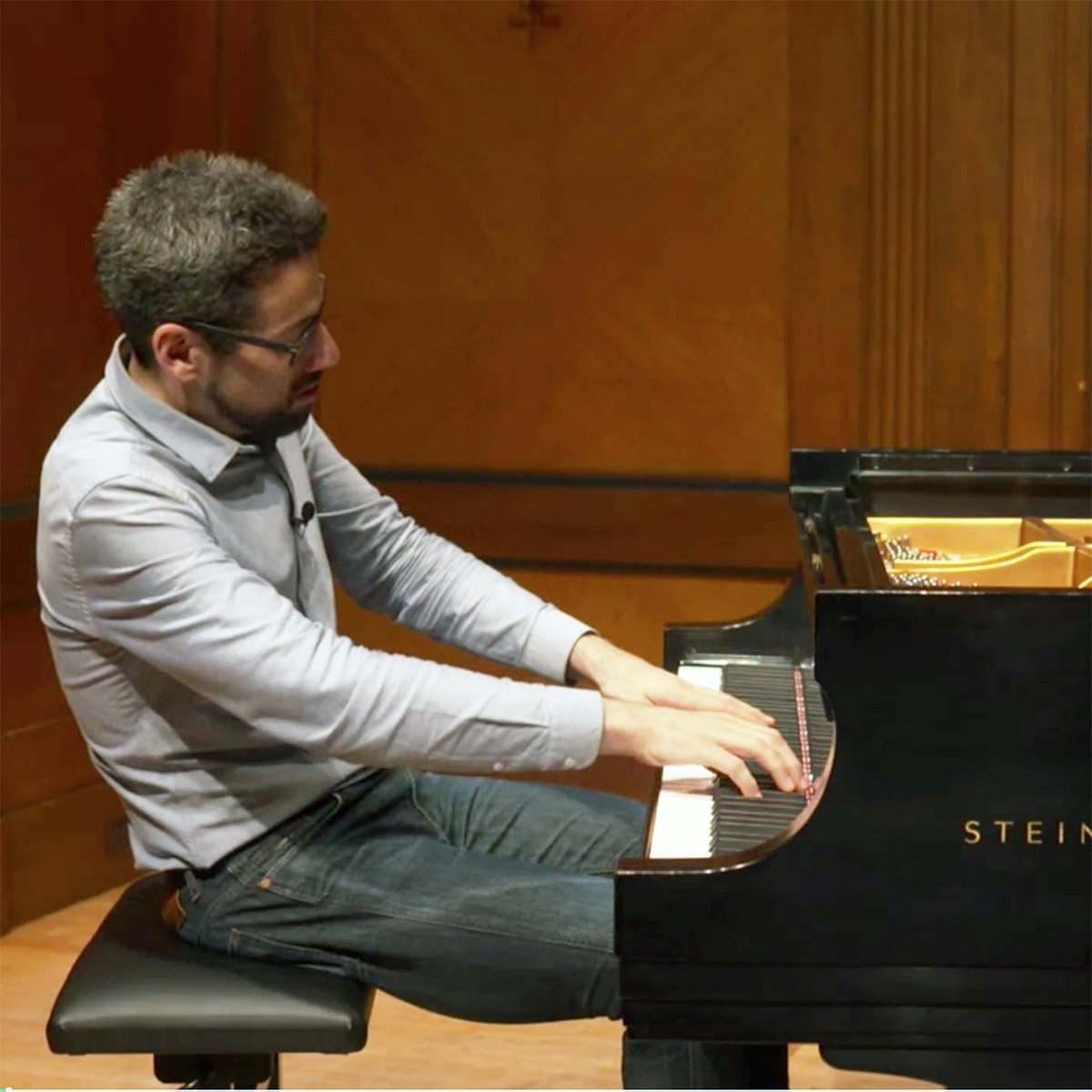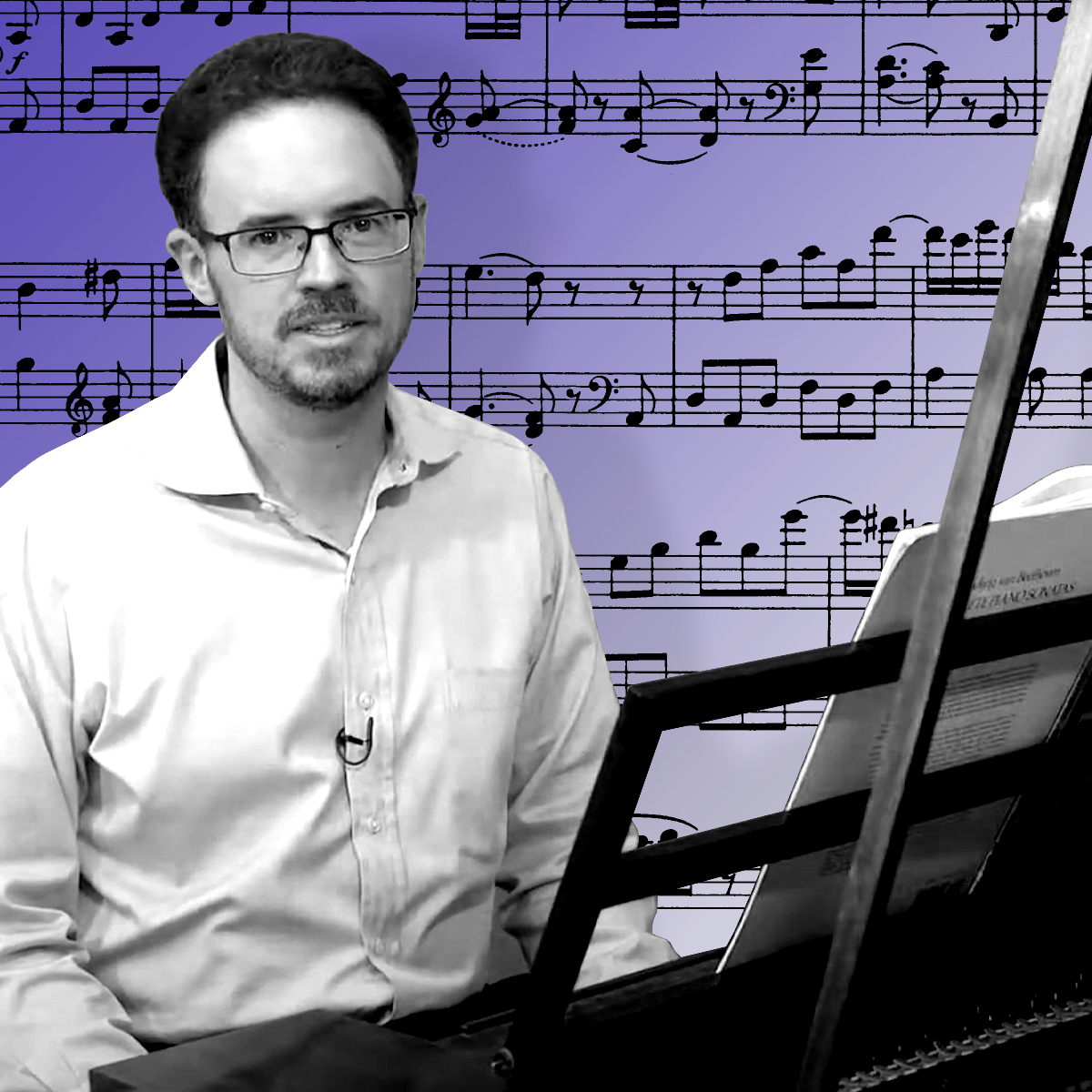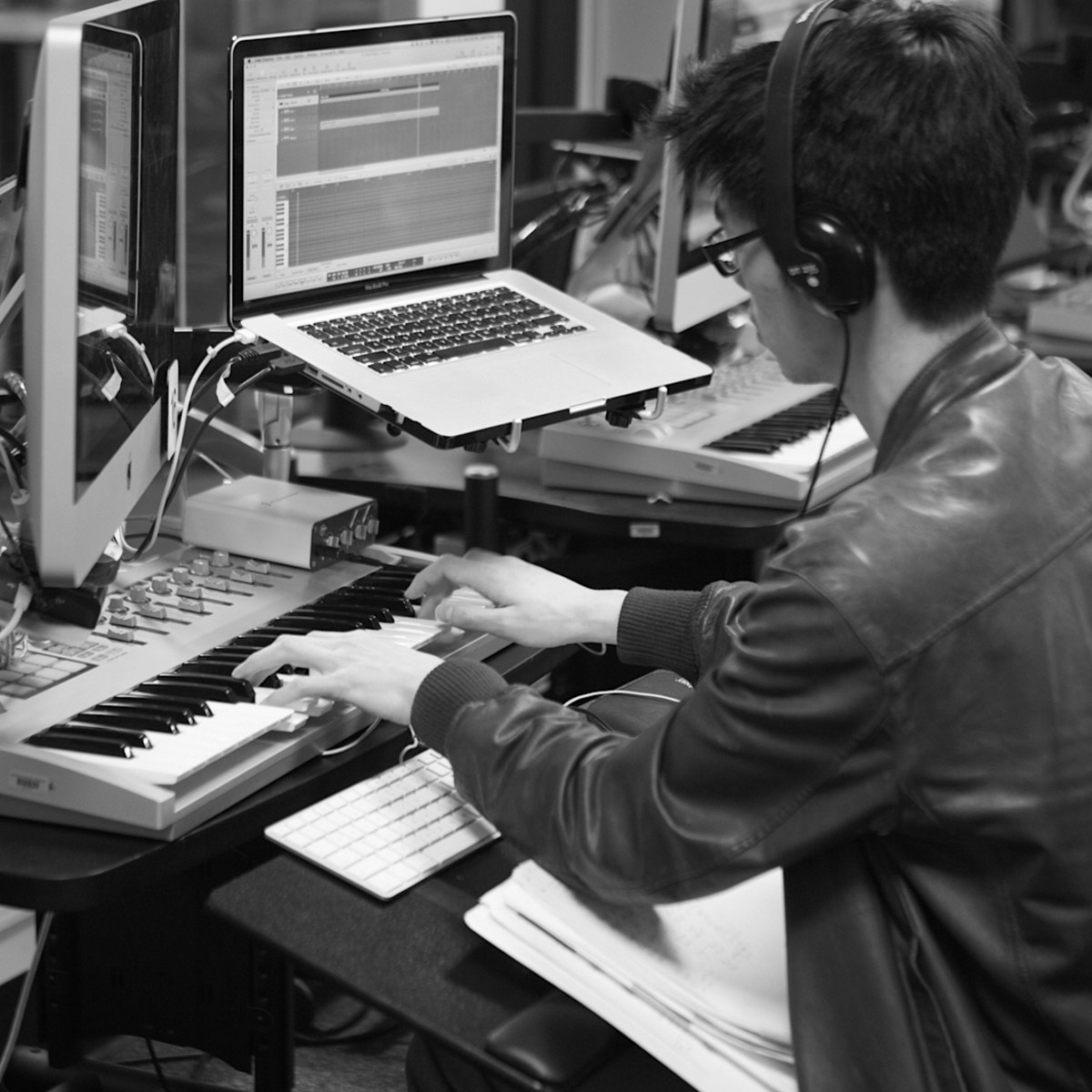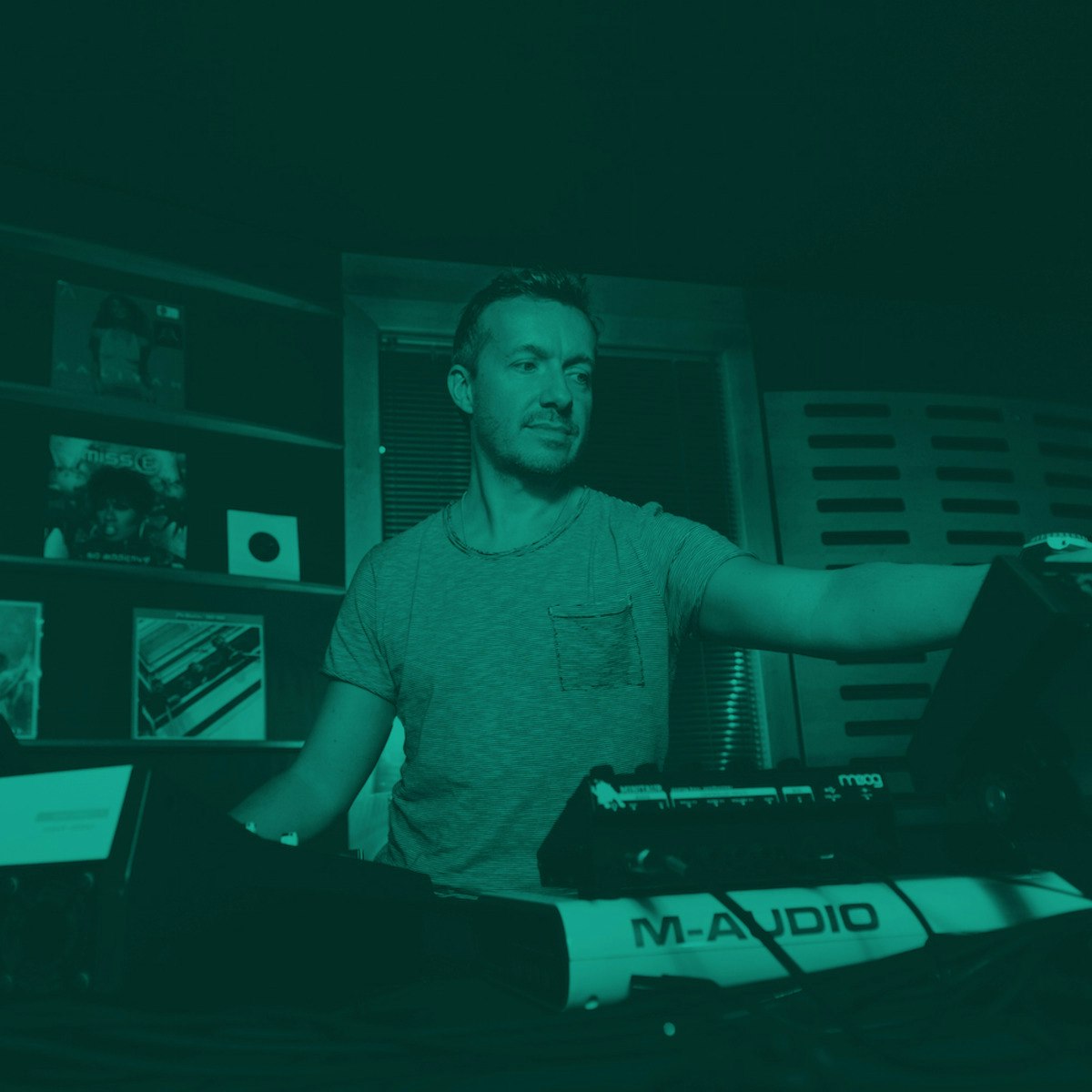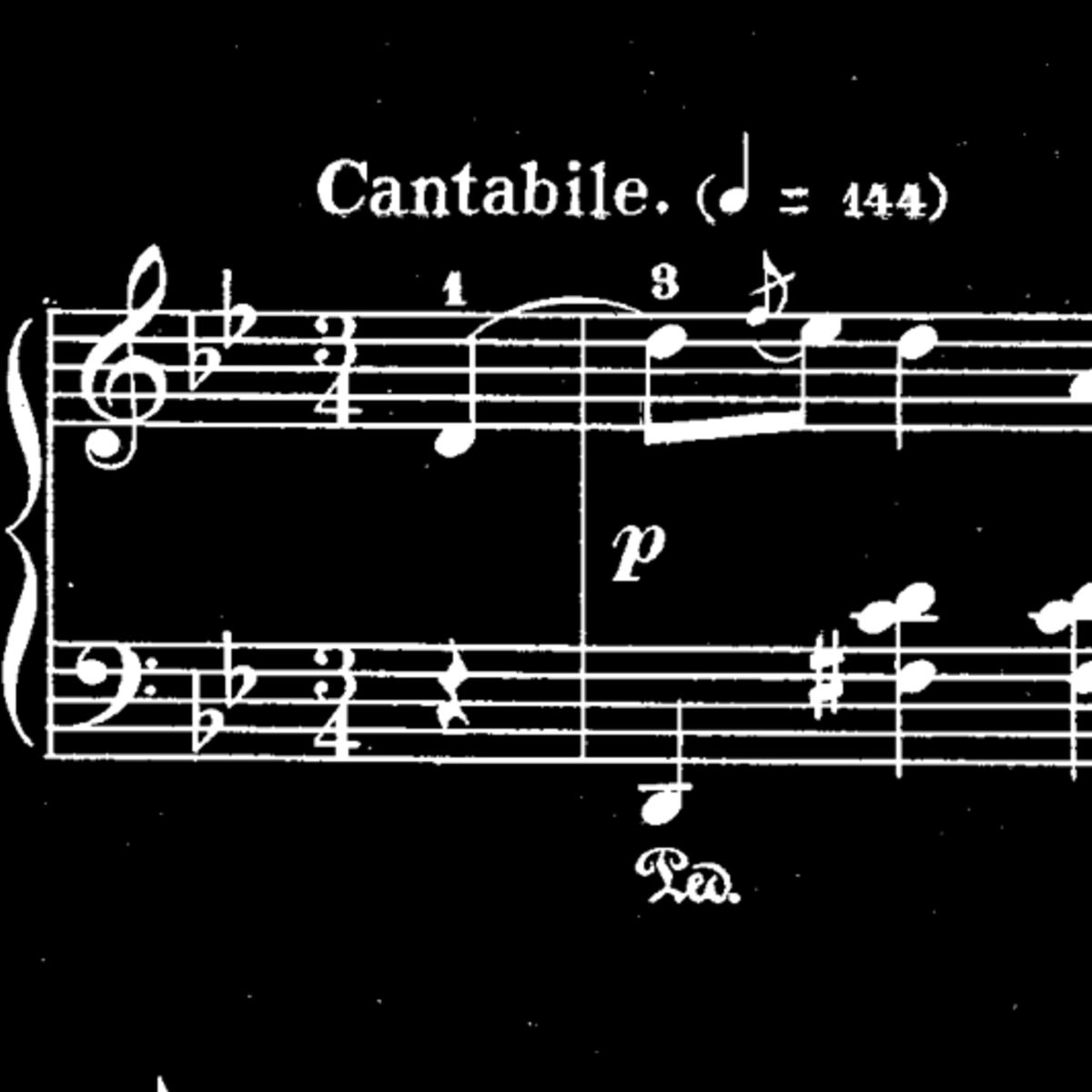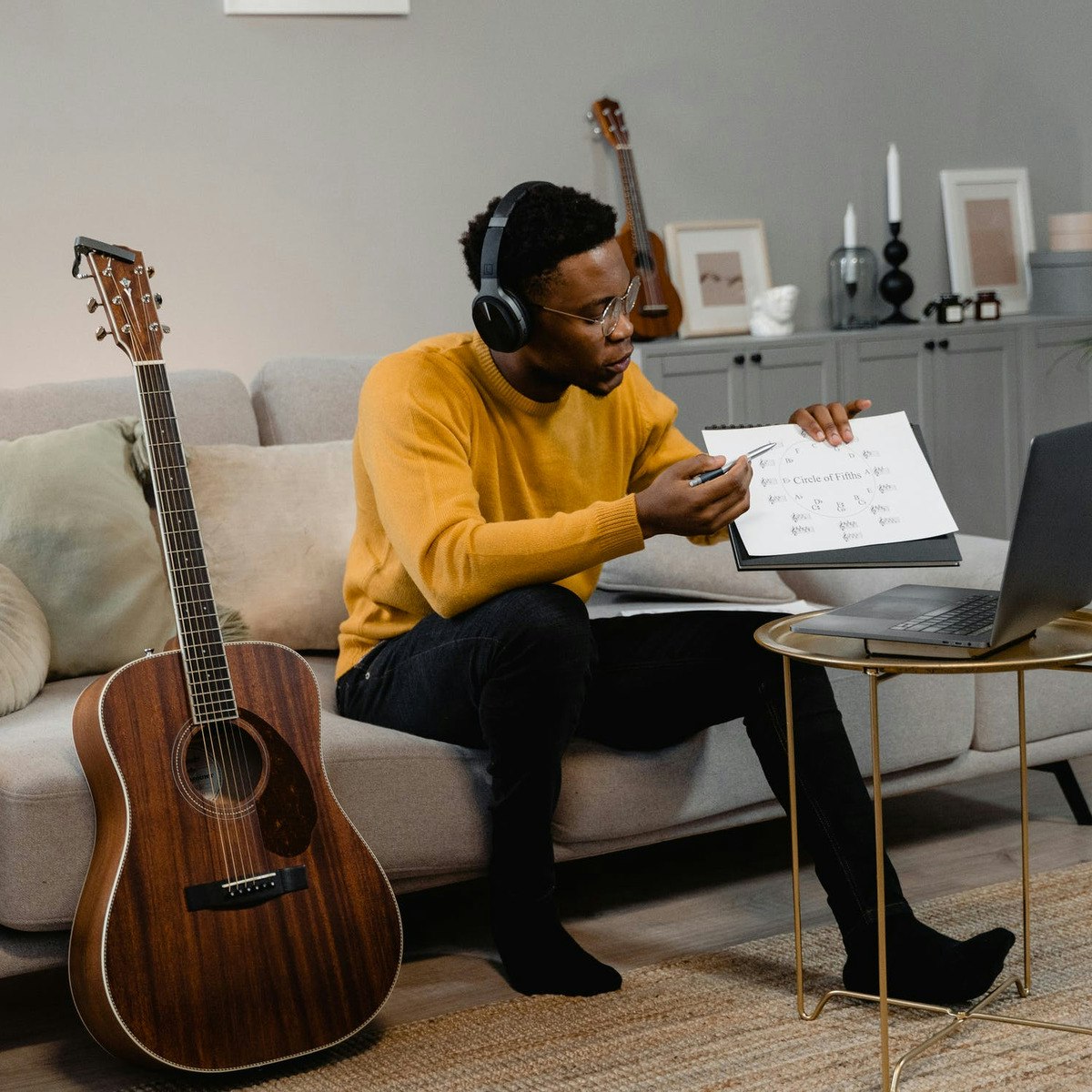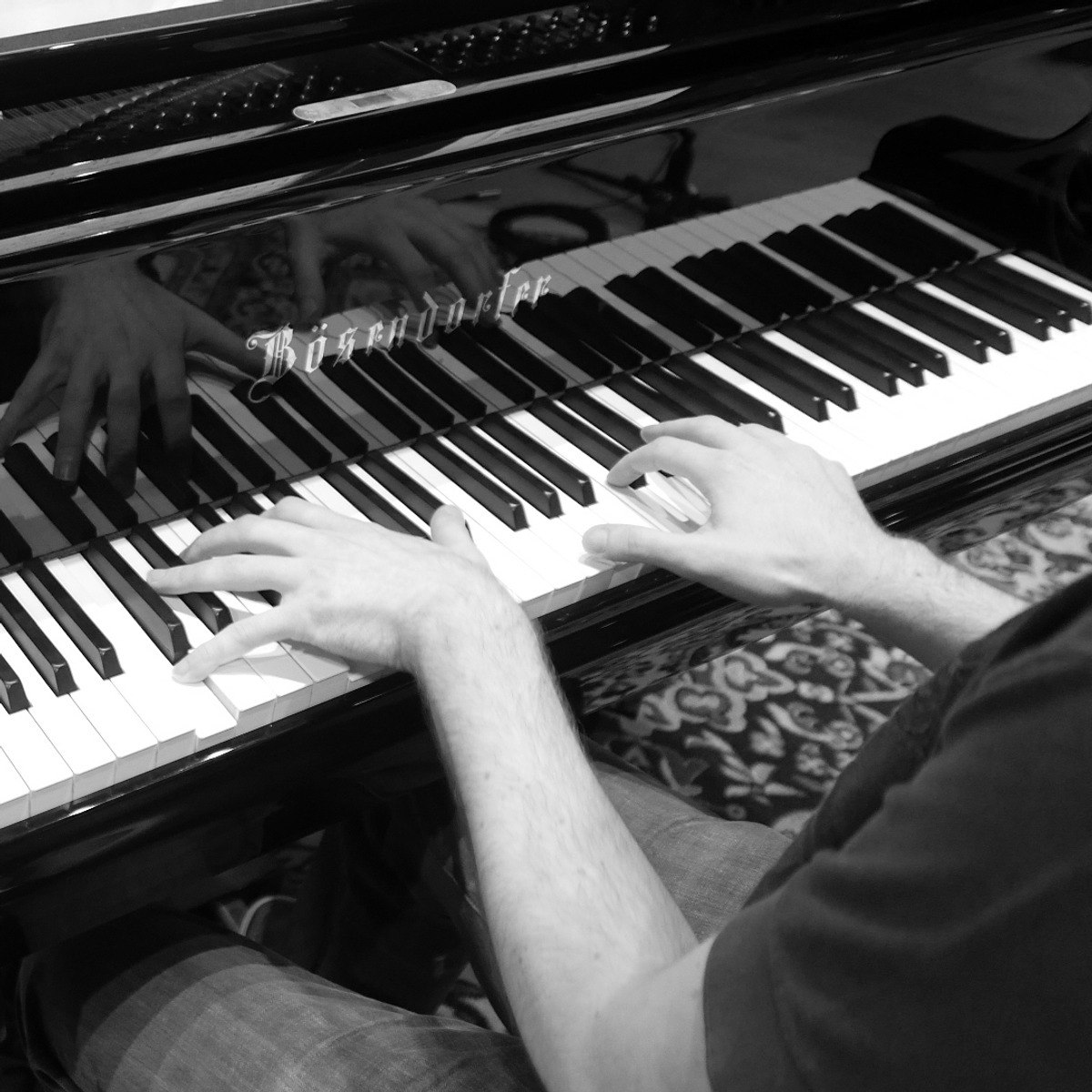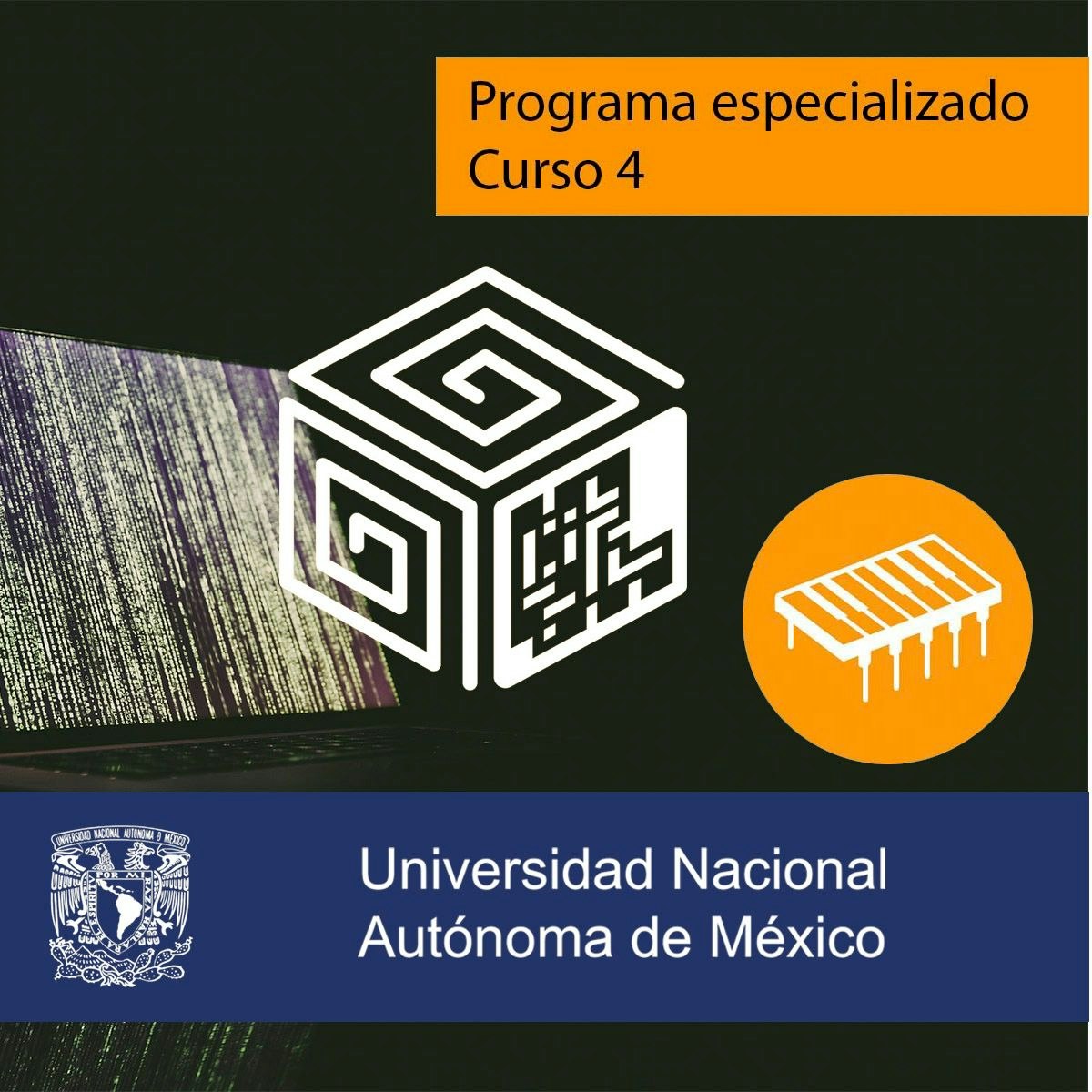Music Composer
The Art and Craft of Music Composition: A Career Exploration
A music composer is an artist who creates original musical pieces. This creation process involves not only conceiving melodies and harmonies but also structuring these elements into a cohesive and expressive whole. Composers work across a vast spectrum of musical styles and media, from the intricate scores of classical symphonies to the evocative soundtracks of films and video games, and the catchy tunes of popular songs. Their role is central to the musical experience, transforming ideas and emotions into the universal language of music.
Embarking on a career as a music composer can be an exhilarating journey filled with creative expression and the thrill of bringing new soundscapes to life. Imagine crafting the perfect melody that captures the emotional core of a film scene, or designing the intricate harmonies that define a new musical genre. The collaborative nature of the work, interacting with musicians, directors, and producers, also offers a dynamic and engaging professional life. For those with a passion for music and a drive to create, the path of a music composer holds immense appeal.
Core Skills for Music Composers
Becoming a successful music composer requires a blend of innate talent, learned skills, and practical experience. This section delves into the essential competencies that form the bedrock of a composer's toolkit, from technical know-how to creative artistry and collaborative abilities.
Technical Proficiency: The Building Blocks of Composition
A deep understanding of music theory is fundamental. This includes mastery of concepts such as harmony, melody, rhythm, and form. Composers must be able to read and write musical notation fluently and understand the principles of counterpoint and voice leading. Knowledge of orchestration, which is the art of writing music for an orchestra or other ensemble, is crucial for composers working in classical, film, or game music. This involves understanding the capabilities, timbres, and ranges of different instruments.
In the modern era, proficiency with music software is indispensable. Digital Audio Workstations (DAWs) like Ableton Live, Logic Pro X, or Cubase are the composer's digital canvas, used for recording, editing, and mixing music. Notation software such as Sibelius or Finale is essential for creating professional scores. Familiarity with virtual instruments and sample libraries is also increasingly important for creating mockups and even final productions.
These courses provide a solid grounding in music theory and the practical use of common music software, both of which are vital for aspiring composers.
For those looking to deepen their theoretical knowledge through reading, these books offer comprehensive insights into music theory and orchestration.
Creative Artistry: Bringing Music to Life
Beyond technical skills, a composer must possess a strong creative vision. The ability to develop memorable and engaging melodies is paramount. Crafting harmonies that evoke specific moods and support the melodic line is equally important. Perhaps most crucially, a composer needs to be a musical storyteller, capable of conveying emotions, narratives, and ideas through sound.
This involves understanding the psychological impact of different musical elements and using them effectively to connect with an audience. Whether scoring a dramatic film scene or composing a standalone concert piece, the composer’s artistic choices shape the listener's experience. Developing a unique musical voice and style, while still being adaptable to the demands of different projects, is a hallmark of a successful composer.
This course can help you develop your songwriting and melodic skills, crucial for crafting compelling musical narratives.
Collaboration and Communication: Working with Others
Music composition is often a collaborative endeavor. Composers frequently work with film directors, game developers, producers, lyricists, and performing musicians. Strong communication skills are essential to understand the creative vision of collaborators and to articulate one's own musical ideas effectively. Being able to receive and incorporate feedback constructively is also a vital part of the process.
Building professional relationships based on trust and mutual respect is key. Composers must be reliable, meet deadlines, and manage their time effectively, especially when working on large-scale projects with multiple stakeholders. The ability to lead and inspire musicians during recording sessions or rehearsals can also be an important asset.
For those interested in the collaborative aspects of composing for visual media, this course offers valuable insights into working with directors and understanding project requirements.
Historical Context of Music Composition
Understanding the history of music composition provides valuable context for contemporary practices. The journey of music creation is a rich tapestry woven through centuries of innovation, cultural shifts, and technological advancements. Examining this evolution helps composers appreciate the foundations of their art form and find inspiration in the works of their predecessors.
Key Periods and Their Defining Characteristics
Music history is often divided into distinct periods, each with its unique stylistic features. The Baroque era (roughly 1600-1750) was characterized by ornate melodies, complex counterpoint (as exemplified by Johann Sebastian Bach), and the development of opera and the orchestra. Composers like Bach and Handel created works of enduring power and intricacy.
The Classical period (circa 1750-1820) emphasized clarity, balance, and formal structure. Composers such as Wolfgang Amadeus Mozart and Joseph Haydn refined genres like the symphony, sonata, and string quartet. Their music is known for its elegant melodies and sophisticated harmonic language.
The Romantic era (approximately 1820-1900) saw an explosion of emotional expression, individualism, and expanded orchestral forces. Composers like Ludwig van Beethoven (whose work bridges the Classical and Romantic periods), Franz Schubert, Johannes Brahms, and Pyotr Ilyich Tchaikovsky explored a wider range of dynamics, harmonies, and programmatic storytelling. The 20th and 21st centuries have been marked by immense diversity, with movements ranging from impressionism and serialism to minimalism, electronic music, and fusions of global musical traditions. Composers like Igor Stravinsky, Arnold Schoenberg, Philip Glass, and John Williams have pushed the boundaries of musical language in myriad ways.
To explore the compositional techniques of one of history's giants, or to understand the theoretical underpinnings of classical music, consider these resources.
Influential Composers and Their Innovations
Throughout history, certain composers have not only created masterpieces but have also fundamentally changed the way music is conceived and written. For instance, Claudio Monteverdi is considered a pivotal figure in the transition from the Renaissance to the Baroque, particularly in the development of opera. Johann Sebastian Bach's mastery of counterpoint remains a benchmark for composers today.
Ludwig van Beethoven revolutionized musical form and emotional expression, paving the way for Romanticism. Richard Wagner expanded harmonic language and the concept of "Gesamtkunstwerk" (total work of art) in his operas. In the 20th century, figures like Arnold Schoenberg with his development of the twelve-tone technique, Igor Stravinsky with his rhythmic innovations, and John Cage with his exploration of chance and silence, profoundly impacted the course of music.
Studying the lives and works of these influential figures offers deep insights into the evolution of compositional thought and practice.
This book provides a look into the world of a significant modern composer.
Technological Advancements and Their Impact
Technology has always played a significant role in shaping music composition. The invention of new instruments, the development of music printing, and advancements in acoustic design have all influenced how composers create and how audiences experience music. For example, the improvements in piano construction during the 19th century allowed for a wider dynamic range and expressive capabilities, which composers eagerly exploited.
The 20th and 21st centuries have witnessed a technological revolution in music. The advent of recording technology changed how music is disseminated and consumed. The development of electronic instruments, synthesizers, and later, computers and music software, opened up entirely new sonic palettes and compositional methods. Today, composers can create complex orchestrations entirely within a computer, and technologies like algorithmic composition and AI are beginning to explore new frontiers in music creation.
These courses explore the creation of electronic music and the use of modern music technology.
Formal Education Pathways
For many aspiring music composers, a formal education provides a structured environment to develop essential skills, gain theoretical knowledge, and build a professional network. Universities and conservatories offer a range of programs designed to nurture compositional talent. Understanding these pathways can help you make informed decisions about your educational journey.
Degrees and Specializations
A Bachelor of Music (B.Mus.) or a Bachelor of Arts (B.A.) with a major in Music Composition is a common starting point. These programs typically offer a comprehensive curriculum covering music theory, history, ear training, keyboard skills, and, of course, composition lessons and seminars. Some students may choose to specialize further, for example, in film scoring, jazz composition, or electronic music production, if such concentrations are available.
For those seeking more advanced study or careers in academia, a Master of Music (M.Mus.) or Doctor of Musical Arts (D.M.A.) in Composition can provide deeper specialization and research opportunities. These graduate programs often culminate in a substantial portfolio of original compositions, a thesis, or a dissertation. According to one source, 28% of music directors and composers hold a Master's degree, while 24% have a Bachelor's degree and 20% possess a Doctoral degree.
These courses offer foundational and advanced music theory, which are core components of any formal music education.
These books are often used in academic settings and provide thorough instruction in music theory and counterpoint.
Curriculum Components: Essential Learning Areas
Core subjects in a music composition program typically include several key areas. Counterpoint, the art of combining multiple independent melodic lines, is a foundational skill often studied through the analysis and emulation of masterworks. Orchestration and arranging involve learning the capabilities of different instruments and how to write effectively for various ensembles. Ear training (or aural skills) develops the ability to recognize and transcribe melodies, harmonies, and rhythms by ear, a crucial skill for any musician.
Music history courses provide context, tracing the evolution of musical styles, forms, and compositional techniques. Keyboard proficiency is often required, as the piano is a valuable tool for composers to work out ideas and play through scores. Of course, private composition lessons with faculty members form a central part of the curriculum, providing individualized guidance and mentorship. Students will also participate in composition seminars, masterclasses, and have opportunities to hear their works performed by student or faculty ensembles.
These online courses cover key curriculum components found in formal music programs, such as advanced harmony and ear training.
Conservatories vs. Universities: Choosing the Right Fit
When considering formal education, a key decision is whether to attend a music conservatory or a university music department. Conservatories typically offer a highly focused, performance-oriented environment. The emphasis is squarely on intensive musical training, with a high number of music-specific courses and frequent performance opportunities. The faculty often consists of renowned performers and composers.
University music departments, while also providing rigorous musical training, usually offer a broader academic experience. Students will take courses in liberal arts and sciences alongside their music studies. This can provide a more well-rounded education and potentially open up a wider range of career options. The choice between a conservatory and a university depends on individual learning styles, career aspirations, and the desire for a specialized versus a broader educational experience. It's beneficial to research specific programs, visit campuses if possible, and speak with current students and faculty to find the best fit.
For further exploration of musical styles and techniques often taught in higher education, consider these resources.
Online Learning and Self-Taught Routes
While formal education offers a structured path, the rise of online learning platforms and digital resources has made it increasingly feasible to acquire music composition skills independently. For those with the drive, discipline, and resourcefulness, a self-taught or online-supported journey can be a viable alternative or supplement to traditional schooling. However, this path comes with its own set of challenges and considerations.
Platforms like OpenCourser can be invaluable for self-learners, offering a vast catalog of courses and books to build a comprehensive understanding of music composition from foundational theory to advanced techniques. The ability to save courses to a list allows for structured learning paths tailored to individual needs and goals.
Effectiveness of Online Courses in Skill Acquisition
Online courses can be highly effective for learning many aspects of music composition. Numerous platforms offer courses in music theory, harmony, counterpoint, orchestration, and software proficiency (DAWs, notation programs). Video lectures, interactive exercises, and downloadable materials can provide a rich learning experience. Many courses are taught by experienced professionals and academics, offering high-quality instruction at a flexible pace.
However, the effectiveness of online learning often depends on the learner's self-discipline and motivation. Without the structured environment of a traditional classroom, it's crucial to set clear goals, maintain a regular study schedule, and actively engage with the material. Finding online communities or forums where you can discuss concepts and share work can also enhance the learning process. OpenCourser’s "Activities" section on course pages can suggest supplementary tasks to deepen understanding beyond passive learning.
These online courses are designed to build foundational and specialized skills in music theory and composition, suitable for self-paced learning.
For those building a curriculum, these books can serve as excellent standalone guides or companions to online courses.
Building a Portfolio Through Independent Projects
Regardless of the learning path, a strong portfolio is essential for any aspiring composer. For self-taught individuals, independent projects are the primary means of developing and showcasing their skills. This could involve composing music for short films made by local students, creating soundtracks for indie video games, writing songs for local bands, or simply composing standalone pieces for various instruments or ensembles.
The key is to consistently create music, experiment with different styles and techniques, and seek opportunities for your music to be heard or used. Setting personal composition challenges, participating in online composition contests, or collaborating with other artists can provide valuable experience and portfolio material. Documenting your work professionally, with clear recordings and well-prepared scores (if applicable), is also crucial.
This course focuses on composing for media, a common avenue for independent projects that can build a strong portfolio.
Bridging Gaps: From Self-Study to Industry Expectations
One of the challenges for self-taught composers can be understanding and meeting industry expectations without the direct guidance of mentors or the formal feedback mechanisms of an educational institution. It's important to actively seek out feedback on your work from experienced composers or musicians. Joining online communities, attending workshops, or even paying for occasional private consultations can provide valuable critiques and insights.
Networking is also crucial. Attend industry events (online or in-person if possible), connect with filmmakers, game developers, or other potential collaborators. Understanding the business side of music, including copyright, licensing, and contracts, is also vital. While online resources can provide a wealth of information, bridging the gap to professional standards often requires proactive effort, continuous learning, and a willingness to adapt based on feedback and industry trends. The OpenCourser Learner's Guide offers articles on creating a self-structured curriculum and maintaining discipline, which are particularly relevant for self-learners.
This course offers practical advice on navigating a music career, which can be especially helpful for those charting their own path.
If you are looking to transition into music composition or are new to the field, remember that persistence and a genuine love for the art form are your greatest assets. The path may be challenging, but every piece you complete, every new skill you acquire, and every connection you make is a step forward. Embrace the learning process, be open to feedback, and don't be afraid to put your music out into the world. Your unique voice has value.
Career Progression and Opportunities
The career of a music composer can unfold in diverse ways, often characterized by a mix of freelance work, commissioned projects, and sometimes, staff positions. Understanding the typical progression and the various avenues available can help aspiring composers navigate their professional journey. It's a field where talent, skill, networking, and entrepreneurial spirit play significant roles.
The OpenCourser Career Development section can provide broader insights into building a career in creative fields.
Entry-Level Roles: Gaining Experience
For those starting out, entry-level positions often involve assisting more established composers. This could mean working as an assistant composer, where tasks might include music preparation (copying and proofreading scores), creating mock-ups of cues using sample libraries, or even contributing smaller compositional elements under supervision. Another common entry point is work as a music arranger or orchestrator, adapting existing music for different ensembles or instrumental combinations.
Some composers begin by scoring student films, indie games, or local theatrical productions. These opportunities, while sometimes unpaid or low-paying, provide invaluable experience, portfolio pieces, and networking connections. Internships with music production houses, publishers, or film/TV composers can also offer a foot in the door. The early stages are often about building a reputation for quality work, reliability, and a collaborative spirit.
These courses can help develop skills in arranging and music production, which are valuable in many entry-level and supporting roles.
Mid-Career: Establishing a Foothold
As composers gain experience and build their portfolios, they often transition to more independent work. Freelancing becomes a common mode of operation, with composers taking on projects for various clients across different media. This could involve scoring independent films, composing music for television commercials, writing for video games, or creating library music for production companies.
Some composers may find staff positions within game development studios, advertising agencies, or music production houses, though such roles are less common than freelance work. Building a strong network of contacts and a distinctive musical voice becomes increasingly important at this stage. Many mid-career composers also diversify their income streams by teaching, giving workshops, or performing. The ability to manage one's own business, including marketing, client relations, and finances, is crucial for a successful freelance career.
This course delves into producing and editing, skills often required by mid-career composers managing their own projects.
Advanced Stages: Recognition and Major Projects
Composers who reach advanced stages in their careers have typically established a strong reputation, a significant body of work, and a recognizable style. They may secure contracts to score major motion pictures, AAA video games, or high-profile television series. In the classical world, advanced composers may receive commissions for new orchestral works, operas, or chamber pieces from renowned ensembles and institutions.
At this level, composers often work with agents or managers to handle business affairs and secure projects. They may lead teams of assistants, orchestrators, and copyists. Some highly successful composers also become educators, mentoring the next generation, or take on leadership roles in industry organizations. While the pinnacle of the profession is highly competitive, it offers the opportunity to create impactful work that reaches a wide audience and leaves a lasting legacy. Advancement depends significantly on talent and skill, potentially leading to recognition for creating music of great complexity and unique style.
Aspiring to compose for large ensembles is a common goal at advanced stages. This topic and career are relevant to that ambition.
The job outlook for music directors and composers is projected to grow about as fast as the average for all occupations, with around 5,100 openings projected annually over the next decade, many due to replacement needs. Median annual wages can vary significantly, with a wide range reflecting the diverse nature of employment in this field.
Industry Trends Impacting Music Composers
The landscape of music composition is continually evolving, shaped by technological innovations, shifting business models, and changing consumer habits. Staying abreast of these trends is crucial for composers to adapt, find new opportunities, and navigate the challenges of a dynamic industry.
The Influence of AI-Generated Music
Artificial Intelligence (AI) is increasingly making its mark on music creation. AI tools can now generate melodies, harmonies, and even complete compositions in various styles. This technology offers composers new tools for experimentation, idea generation, and overcoming creative blocks. For instance, AI can assist with aspects like mastering audio tracks or generating initial musical ideas, allowing human composers to focus more on the creative and emotional core of their work.
However, the rise of AI also presents challenges and ethical questions. Concerns exist about the potential for AI to devalue human creativity or even displace composers in certain areas, particularly in the creation of functional or background music. Copyright ownership of AI-generated or AI-assisted music is another complex area that is still being navigated. Composers will need to understand how to leverage AI as a tool while also emphasizing the unique emotional depth and artistic intent that human creativity brings.
The following book explores the world of electronic music, a field often at the forefront of technological adoption, including AI.
Streaming Platforms and Royalty Structures
The dominance of streaming platforms has fundamentally changed how music is consumed and monetized. While streaming offers unprecedented access to music for listeners and a global distribution platform for artists, the royalty structures have been a subject of ongoing debate. For many composers and songwriters, the per-stream royalties can be very low, making it challenging to earn a sustainable income solely from streaming, especially for those who are not also the performing artists.
Efforts are underway by various industry groups and advocates to create more equitable royalty distribution models. Some reports indicate growth in overall digital revenue for songwriters and composers, driven by user growth on streaming platforms and new licensing deals. Global music copyright revenues have seen significant growth, with streaming being a major driver. Composers need to understand how publishing royalties, mechanical royalties, and performance royalties are collected and distributed in the streaming era. Diversifying income streams beyond streaming, such as through synchronization licenses (music for film, TV, games), live performance (if applicable), and commissions, remains important.
This article from IFPI, a global organization representing the recording industry, often provides reports on music industry revenues, including streaming.
Globalization and New Market Opportunities
The internet and digital technologies have made music a truly global art form and industry. Composers can collaborate with artists from around the world, and their music can reach international audiences with ease. This globalization opens up new markets and opportunities, particularly in rapidly growing music markets in Asia, Latin America, and Africa.
Composers who are adaptable and culturally aware may find opportunities to write music that blends different traditions or caters to specific international tastes. The demand for music in global advertising, film, and gaming industries also creates avenues for composers with diverse skill sets. However, globalization also means increased competition, as composers from all over the world are vying for attention and projects. Building an online presence and effectively marketing oneself to an international audience are becoming increasingly vital skills.
This course explores incorporating diverse musical traditions, relevant in a globalized music market.
For those considering a career in music composition, the journey requires passion, dedication, and a willingness to adapt. While the path can be demanding, the rewards of creating music that moves, inspires, and entertains are immense. Ground yourself in the fundamentals, continuously hone your craft, and be open to the evolving landscape. Your unique musical voice has the potential to resonate far and wide.
Ethical and Legal Considerations
Navigating the music industry as a composer involves more than just creative talent; it also requires an understanding of the ethical and legal frameworks that govern musical works. Protecting one's own creations and respecting the rights of others are fundamental aspects of a professional composing career.
Copyright Laws and Intellectual Property
Copyright is a legal right that grants creators of original works exclusive rights to control their use and distribution. For music composers, copyright protects their musical compositions (the melody, harmony, and lyrics, if any). This protection is generally automatic once the work is fixed in a tangible form, such as written sheet music or a sound recording. However, registering your work with the relevant copyright office (e.g., the U.S. Copyright Office) can provide additional legal benefits, such as the ability to sue for statutory damages in cases of infringement.
Understanding the duration of copyright (which typically lasts for the life of the author plus a certain number of years) and what constitutes public domain is also important. Composers often work with music publishers who help administer their copyrights, promote their music, and collect royalties. It is vital to carefully review any publishing agreements.
These resources provide general information about copyright, which is essential for composers.
The U.S. Copyright Office offers extensive information and resources on copyright law. Another helpful resource for Australian creators is the Arts Law Centre of Australia.
Plagiarism vs. Inspiration: Drawing the Line
All creators are influenced by the works of others, and music is no exception. Composers learn their craft by studying and analyzing existing music. However, there is a critical distinction between drawing inspiration and committing plagiarism. Plagiarism involves presenting someone else's work or ideas as one's own without proper attribution.
In music, this can involve copying melodies, harmonies, rhythms, or lyrics without permission. While unintentional similarities can sometimes occur, substantial and direct copying can lead to legal action for copyright infringement. Composers must strive for originality in their work and be mindful of the sources of their inspiration. When using pre-existing material (e.g., samples or existing texts), it's crucial to secure the necessary permissions and licenses.
Understanding music theory deeply can help in creating original works by providing the tools to develop unique ideas rather than relying on familiar patterns.
Contract Negotiation and Royalty Management
Composers frequently enter into contracts for commissions, synchronization licenses (for film, TV, games), publishing deals, and other agreements. Strong negotiation skills are essential to ensure fair terms regarding fees, creative control, credit, and royalty splits. It's highly advisable to seek legal counsel from an attorney specializing in entertainment or music law before signing any significant contract.
Understanding how royalties are generated and collected is also crucial. This includes mechanical royalties (from sales of recordings), performance royalties (from public broadcasts and performances, often collected by Performing Rights Organizations like ASCAP, BMI, and SESAC in the US, or PRS in the UK), and synchronization fees. Keeping accurate records and understanding royalty statements are important aspects of managing the business side of a composing career.
This book can offer insights into navigating the music business, which includes understanding contracts and royalties.
Challenges in Modern Music Composition
While a career in music composition can be immensely rewarding, it also comes with a unique set of challenges in the contemporary world. Aspiring and established composers alike must navigate a competitive market, balance artistic aspirations with commercial realities, and manage the personal tolls of a creative profession.
Market Saturation and Competition
The accessibility of music creation tools has led to a significant increase in the number of individuals producing music. While this democratization of creativity is positive in many ways, it also means a more saturated market and heightened competition for available opportunities, whether in film scoring, game audio, or songwriting. Standing out requires not only exceptional talent and skill but also strong networking abilities and a unique artistic voice.
Composers may find themselves competing for projects with many other talented individuals, often on a global scale. Building a strong portfolio, developing a niche, and actively marketing oneself are crucial for gaining visibility and securing work. Persistence and resilience are key attributes in the face of inevitable rejections and a competitive landscape.
Developing advanced skills in specific areas, such as complex orchestration or specialized software, can help composers differentiate themselves.
Balancing Artistic Integrity with Commercial Demands
Many composers, particularly those working in commercial media like film, television, advertising, or video games, often face the challenge of balancing their own artistic vision with the specific requirements and constraints of a project. Clients (directors, producers, game developers) will have their own ideas, target audiences, and brand considerations that the music must serve.
This can sometimes lead to creative compromises or the need to work in styles that may not align perfectly with the composer's personal preferences. Successful composers learn to be adaptable, to understand the client's needs deeply, and to find creative solutions that satisfy both the project's goals and their own artistic standards. Maintaining artistic integrity while also being a versatile and collaborative professional is a delicate but essential balancing act.
Exploring diverse musical styles can broaden a composer's versatility, making it easier to adapt to various commercial demands.
Mental Health and Creative Burnout
The life of a composer can be demanding. Irregular hours, tight deadlines, the pressure to constantly create original work, financial instability (especially for freelancers), and the subjective nature of artistic evaluation can all contribute to stress and, potentially, creative burnout. The solitary nature of much compositional work can also lead to feelings of isolation.
It is important for composers to prioritize their mental and physical well-being. This includes developing healthy work habits, setting boundaries, seeking support from peers or mentors, and finding ways to recharge creatively. Recognizing the early signs of burnout and taking steps to address them is crucial for long-term sustainability in this challenging yet fulfilling career. Strategies like maintaining a structured routine, exploring various genres for inspiration, collaborating with others, and seeking feedback can help mitigate some of these challenges.
Learning to manage the creative process effectively can help prevent burnout. This may involve exploring different compositional techniques or finding inspiration from unexpected sources.
For those embarking on or navigating a career in music composition, know that challenges are part of any creative endeavor. Building resilience, seeking community, and staying true to your passion for music are vital. The journey may have its difficulties, but the power to create and share music that connects with others is a profound and worthwhile pursuit. Ground yourself in the realities of the profession, but never lose sight of the artistic spark that drew you to composition in the first place.
FAQs: Careers in Music Composition
This section addresses some frequently asked questions about pursuing a career as a music composer, offering concise insights to help clarify common concerns and misconceptions.
Is formal education mandatory for success?
No, formal education is not strictly mandatory to become a successful music composer, especially in popular music genres or for those who are exceptionally talented and self-motivated. Many successful composers, particularly in film, television, and popular music, have been largely self-taught or have learned through apprenticeships and practical experience. However, a formal education (such as a degree in music composition) can provide a strong theoretical foundation, structured skill development, mentorship, access to performance opportunities, and valuable networking connections. It often accelerates the learning process and can be particularly beneficial for those aspiring to compose classical music or teach at a university level. Ultimately, a strong portfolio, demonstrable skills, and industry connections are key, regardless of the educational path taken.
How do composers find their first clients or projects?
Finding initial clients often involves a combination of networking, self-promotion, and starting with smaller, often local, projects. Many composers begin by scoring student films, indie video games, or local theater productions – sometimes on a volunteer basis or for a nominal fee to build their portfolio and gain experience. Actively attending industry events (even virtual ones), joining online communities of filmmakers or game developers, and reaching out to potential collaborators can lead to opportunities. Creating a professional website showcasing your work and maintaining an active online presence is also crucial. Word-of-mouth referrals from satisfied early clients can be very powerful in generating further work.
What are the income ranges for different career stages?
Income for music composers varies dramatically based on experience, reputation, the type of project, and the industry (e.g., film, games, classical, advertising). Entry-level composers or those working on small independent projects might earn modest fees per project or even work for deferred payment or experience. Mid-career freelance composers might earn a project-based income that can fluctuate significantly from year to year. Highly successful composers working on major films, popular video games, or receiving significant classical commissions can earn substantial incomes. According to bls.gov, the median annual wage for music directors and composers was $63,670 in May 2024, but this figure encompasses a very wide range, with the lowest 10 percent earning less than $26,416 and the highest 10 percent earning more than $177,897. Many composers also supplement their income through teaching, arranging, orchestrating, or performing.
Can AI replace human composers?
While AI is becoming increasingly sophisticated in generating music, it is unlikely to completely replace human composers in the foreseeable future, especially for work that requires deep emotional expression, nuanced storytelling, and profound originality. AI can be a powerful tool for composers, assisting with tasks like generating ideas, creating mockups, or even co-composing. However, AI currently lacks the subjective experience, cultural understanding, and intentionality that human composers bring to their work. The industry may see AI take on more functional music creation roles (e.g., some types of library music or simple background scores), but the demand for unique, emotionally resonant music crafted by human artists is likely to persist.
How to protect original compositions legally?
Original musical compositions are automatically protected by copyright the moment they are "fixed in a tangible medium of expression" (e.g., written down or recorded). To further strengthen this protection and to be eligible for certain legal remedies in case of infringement, composers should consider formally registering their works with their national copyright office (e.g., the U.S. Copyright Office). This creates a public record of authorship and copyright ownership. It is also good practice to include a copyright notice (© [Year] [Composer's Name]) on published scores and recordings. For collaborations, having a written agreement outlining ownership shares and rights is essential. Consulting with an entertainment lawyer can provide specific guidance on protecting your intellectual property.
What networking strategies are effective?
Effective networking involves building genuine relationships within the music and related industries. Attending industry conferences, workshops, film festivals, and game developer meetups (both online and in-person) can provide opportunities to connect with potential collaborators like directors, producers, and game developers. Joining professional organizations for composers can also offer networking events and resources. Building an online presence through a professional website and social media, and actively engaging with online communities relevant to your field of composition, is important. Reaching out to filmmakers, game designers, or other creators whose work you admire (politely and professionally) to offer your services or collaborate can sometimes lead to opportunities. The key is to be proactive, genuine, and persistent in building and maintaining professional connections.
This journey into music composition is one of continuous learning and adaptation. The path requires dedication, but the ability to create and share music is a unique and powerful endeavor. Stay curious, keep composing, and let your musical voice be heard.







